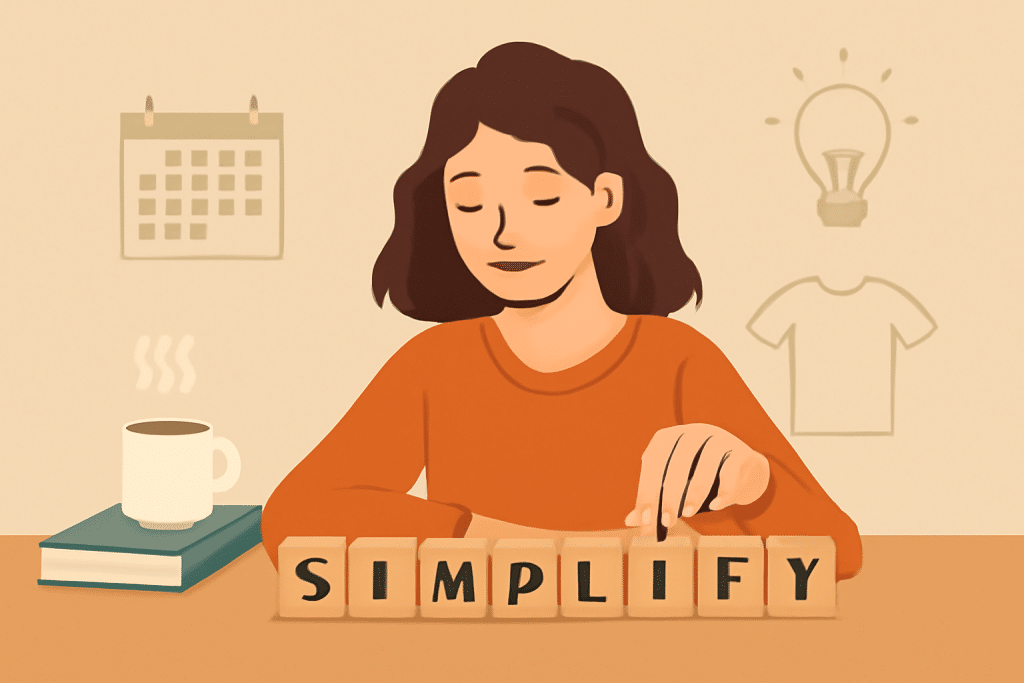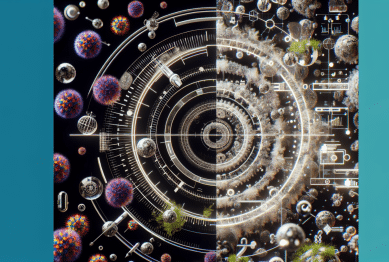In today’s fast-paced world, the constant stream of choices we face every day can leave us feeling overwhelmed. From choosing what to eat, wear, or how to organize our day, these seemingly small decisions can build up and create mental fatigue. But what if simplifying our daily decisions could free up our minds and reduce stress? Here’s how making fewer decisions can lead to more mental clarity and ultimately, greater mental freedom.

Why Too Many Choices Can Lead to Stress
Every day, we are bombarded with countless decisions, from mundane ones like what to eat for breakfast, to more significant choices like how to balance work and personal life. This constant decision-making process can cause decision fatigue, leading to burnout. According to research, the human brain has limited cognitive resources, and the more decisions we make, the less energy we have for important tasks (Baumeister, 2018).
This “choice overload” can also cause a paradox: while we think that more choices will make us happier, they often lead to anxiety, dissatisfaction, and even regret. It’s not just the big decisions that cause stress; the accumulation of small, trivial choices can pile up, making us feel mentally drained at the end of the day (Schwartz, 2004).
The Power of Reducing Decision Fatigue
Reducing the number of decisions we have to make can have a profound impact on our mental health. By creating simple routines or automating choices, we can conserve our mental energy for more meaningful tasks.
For example:
- Streamlining Your Wardrobe: Think about the number of decisions you make about your outfit every day. By adopting a minimalist wardrobe or creating a capsule wardrobe, you eliminate the time and energy spent deciding what to wear each morning. Steve Jobs was famous for wearing the same outfit every day, allowing him to focus his energy on his work rather than his clothes.
- Meal Planning: Simplifying meal decisions can reduce the mental load of figuring out what to eat each day. Meal prepping for the week or following a meal plan can help streamline this task, giving you more time and mental clarity.
- Digital Declutter: Our phones and inboxes are often full of notifications and messages, leading to constant decision-making. Decluttering your digital space and reducing the number of apps or email subscriptions can free up your attention.
How This Leads to Mental Freedom
When we make fewer decisions, we free up cognitive resources. This means we have more mental space to focus on things that matter most, like relationships, creative projects, or self-care. Here are a few ways simplifying decisions leads to greater mental freedom:
- Increased Productivity: Simplifying decisions leaves you with more energy and focus, allowing you to tackle important tasks more effectively.
- Reduced Anxiety: The fewer decisions you have to make, the less likely you are to feel overwhelmed. By taking the guesswork out of your day, you eliminate the pressure that often comes with indecision.
- Enhanced Creativity: When you aren’t preoccupied with everyday decisions, your mind is free to explore creative ideas. Many successful people, like writers or entrepreneurs, thrive in an environment where they can focus on creativity without being bogged down by trivial choices (Tversky & Kahneman, 1981).
Practical Tips to Simplify Your Daily Decisions
If you want to reduce mental clutter and reclaim your mental freedom, here are some practical tips to help simplify your daily decisions:
- Create Routines: Automate decisions by establishing consistent routines. Having a set morning routine, exercise schedule, or meal planning system can drastically reduce daily decision-making.
- Limit Options: Too many choices often lead to stress. Whether it’s simplifying your shopping list or deciding on a few key outfits, limiting options can make decision-making easier.
- Embrace Minimalism: Consider adopting a minimalist approach to both your physical space and your digital life. The less stuff you have, the less you need to manage, leading to reduced decision fatigue.
- Prioritize What Matters: Focus your mental energy on the decisions that align with your long-term goals and well-being. By reducing the energy spent on trivial decisions, you can direct your focus toward the bigger picture.
Mental Freedom in Action: Real-Life Examples
- Barack Obama: The former U.S. President often talked about how he simplified his wardrobe to focus on more important matters. “You’ll see I wear only gray or blue suits,” Obama said. “I’m trying to pare down decisions. I don’t want to make decisions about what I’m eating or wearing.”
- Mark Zuckerberg: Like Obama, Mark Zuckerberg is known for wearing the same outfit almost every day. This not only simplifies his decision-making but also allows him to focus more on his work at Facebook, leading to greater efficiency and innovation.
The Science Behind Decision-Making and Mental Health
Research has consistently shown that mental clarity and freedom are essential for overall well-being. According to studies in psychology, reducing decision-making reduces stress and mental overload (Baumeister, 2018). Simplifying decisions can help us avoid the cognitive drain that leads to burnout, which is crucial in our fast-paced, always-connected world.
Furthermore, mental freedom isn’t just about making fewer decisions—it’s about creating space for mindfulness and reflection. When we give ourselves permission to stop micromanaging every detail of our day, we invite more peace and clarity into our lives.
Conclusion
Simplifying daily decisions is a powerful tool for achieving mental freedom. By creating routines, limiting choices, and focusing on what truly matters, you can drastically reduce mental fatigue and improve your quality of life. Start small—take one area of your life and simplify it. Over time, you’ll find that less really is more. It’s not just about making life easier; it’s about giving yourself the freedom to live more fully and mindfully.
References
- Baumeister, R. F. (2018). Decision Fatigue: Why Making Too Many Choices Can Kill Your Focus. Psychology Today. Available at: https://www.psychologytoday.com (Accessed: 1 August 2025).
- Schwartz, B. (2004). The Paradox of Choice: Why More Is Less. HarperCollins Publishers. Available at: https://www.harpercollins.com (Accessed: 1 August 2025).
- Tversky, A., & Kahneman, D. (1981). The Framing of Decisions and the Psychology of Choice. Science, 211(4481), 453-458. Available at: https://www.science.org (Accessed: 1 August 2025).









